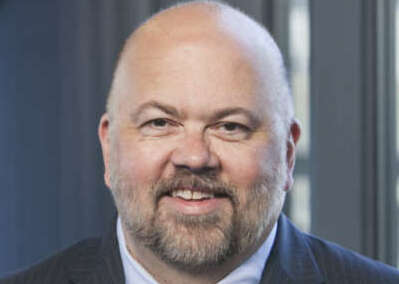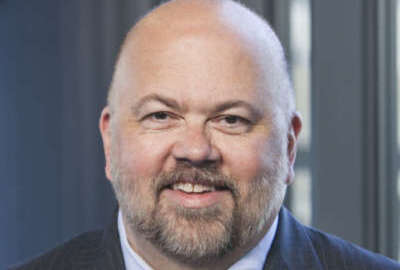
Reflections on 41 years in and around government
Ready to retire, columnist Jeff Neal reflects on his more than three decades in and around federal government, and the lessons he's learned.
This column was originally published on Jeff Neal’s blog, ChiefHRO.com, and was republished here with permission from the author.
I started working for the federal government in 1978, spent 31 years as a career employee, then “burrowed out” into a political appointment during the Obama administration. After a total of 33 years as a fed, I retired from the government and went to work in the private sector, for a company called ICF.
Next week, I am going to retire.
With this transition looming, I thought this might be a good time to reflect on a few things I learned — sometimes the hard way — in all of those years in government and in the private sector.
Who your boss is matters
Like most people, I have had great bosses and bosses who were not so great. There have even been a few total jerks. The great ones, like Vice Adm. Keith Lippert, director of the Defense Logistics Agency for five years, make going to work a joy. They help when needed and stay out of the way the rest of the time. They listen, allow you to bounce ideas off them, and point out when you might be about to drive off a cliff. When you have a great boss, you can get a lot done.
On the other hand, there are the jerks. One example was a guy who would not speak to employees in the morning on most days. You could speak to him and he would just look up, then go back to whatever he was doing. Does that mean you should take a job solely because you will have a great boss? No. There is no guarantee that the great boss you go to work for will be there for long. S/he may retire, find another job, or fall out of favor and be reassigned. Enjoy the great bosses when they are around, but do not make career decisions assuming they will be there forever.
Who your employer is matters
I have worked for great organizations and not-so-great ones. The great ones have a few things in common. First is having a mission that matters. When people are doing work that makes a difference, they tend to be more engaged and the environment is better for everyone. The second thing they have in common is actually caring about the people. Every organization will tell you “people are our most important resource,” but for many those are just words. They say people are important, but defund people programs, or lack trust in their workers, or do countless other things that send the message that people are probably number 6, at best.
Good employers can be found in a lot of places. I spent nine years as HR director for the Defense Logistics Agency and enjoyed my work and the people I worked with. When I left government, I spent eight years at ICF, and enjoyed the work and the people I work with. But, I heard from other people in other places in the Defense Department that they did not work in a good organization, or had lousy bosses. I have heard the same thing from people in other companies. It pays to do your due diligence before you accept a job.
Related Stories
Most jobs are partly your job description, and partly you
Related Stories
When we are hired for a job, we usually get some description of what the job is supposed to be. Written job descriptions are more of a government thing. Whether the description is written or verbal, remember that it is only a starting point. Changing circumstances are likely to change what your job is and what your employer expects of you. A big part of any job is what you want it to be. What projects do you take on? Where do you decide to pitch in even thought it is not what you were hired to do? What ideas do you take to your bosses? And how do you do the work?
The people I have found are least satisfied with their jobs are people who either do not take the initiative to expand their jobs or those whose bosses will not let them do it. Either way, being confined to a narrow set of responsibilities is often a ticket to frustration and unhappiness. I have been lucky that most of the people I have worked for have been willing to let me work on things I enjoyed doing. One boss told me years ago “You do not seem to be limited by your job description.” She meant it as a compliment, which was the way I took it.
The good people are not just in government, or just in the private sector
It really makes me ill to hear comments from people in government who think most people in the private sector are greedy crooks. And it is just as frustrating when I hear people in the private sector say that government workers are lazy, or incompetent, or just cannot get real jobs in the private sector. There are great people in government who do amazing work every day. They care about what they do, honor their oath of office, and would be assets in any organization. There are also great people in the private sector. They care about what they do and are not just in it for a fast buck.
One thing that has driven that home for me is my work with the National Academy of Public Administration. NAPA is a not-for-profit, congressionally chartered “good government” organization. NAPA’s fellows are elected after distinguished careers in the field of public administration. Fellows come from state, local and federal government, academia, other not-for-profit organizations and from the private sector. All of them have learned that solutions to big problems, and Grand Challenges, are possible only when we apply the best thinking from all of those sectors.
And that leads to the most important lesson of all …
You take yourself with you everywhere you go
I wish I could take credit for that expression, but it came from the mother of a dear friend. What it means is the one common denominator everywhere you go is you. If you find that people are hard to get along with everywhere you go, the odds are that you are the one who is hard to get along with. If every boss is a jerk, maybe you are the jerk. But if your bosses and peers think you are doing a great job, and you get lots of opportunities to do interesting and challenging projects, it is probably because you are doing things that instill confidence that you really are able to do a great job, and then you deliver results. No one hits a home run every time, but your own behavior goes a long way toward creating your work environment.
My federal career and the eight years at ICF have been personally and professionally rewarding. I started as a GS-5 from a small town in southern West Virginia and ended my federal career as chief human capital officer for a department with more than 200,000 employees. I worked with some of the most dedicated, capable, and decent people anyone could ask for.
Retiring does not mean I am going away. I will continue writing this blog because I still have plenty of things to say. The work I do with the National Academy of Public Administration and the Partnership for Public Service will continue, and I will probably do some limited consulting after I take a break for a few months. I appreciate the readers who have supported ChiefHRO from the beginning, and who tell me that they read the blog, pass it around to their colleagues and friends, and offer ideas for columns I should write. Keep those ideas coming, and I will keep writing and speaking out on issues that are important to the public service and public administration.
Jeff Neal authors the blog ChiefHRO.com and was previously the chief human capital officer at the Department of Homeland Security and the chief human resources officer at the Defense Logistics Agency.
Copyright © 2024 Federal News Network. All rights reserved. This website is not intended for users located within the European Economic Area.




